【Starry Story】Yasuhiro Taro Seki (Japan)
[Starry Story] Yasuhiro Taro Seki (Japan)

-----My Astronony Story-----
My name is Yasuhiro Taro Seki, commonly know as Taro since I was 16 years old.
Born in Japan in 1960 and living in Tokyo, I have lived permanently in Thailand since 2001 and now live in Pattaya.
--10 years old~
I still remeber my encounter with celestial bodies. The cover of the mini astrononomical picture book I bought when I was 10 was the Horsehead Nebula. I entered astronomical observation with the surprise of "Is there something like this is the sky!" And the curiosity of wanting to see it for myself.
At this time, I was still looking at the constellations and open clusters in the Messier catalogue by observing with the naked eye and binoculars.
--28 years old~
How far can you see in Tokyo, where light pollution and pollution are severe? I bought 130mm caliber Newtonian and a manual EQ mount, and looked into the night sky from the balcony on the second floor of the house.
As I moved the telescope east from Bethelgius on a sunny winter night, a black donut- like object that clearly had a different contrast from the color of the night sky was reflected in the eyepiece. It was definitely a Resette Nebula when I chekced it on the chart.
--36 years old~
At the beginning of the automatic introduction, I purchased Meade's 10inch automatic introduciton Maksutov. At that time, he introduced the indicated Target into the field of view of the 20mm eyepiece with tremendous accuracy.
I still remember the brilliance of Trapezium seem from the sky of Tokyo at 10 inch.
--41 years old~57 years old
After moving to Thailand, it was a time when I worked like a carriage horse, and sometimes I looked up at the sky and saw the starry sky of the southern sky such as the Southern Cross, Canopus and Centaurus with the naked eye to heal the triedness of work.
--58 years old~
Knowing that it became easier to shoot astronomical objects in the era of CCD cameras, I imported Celestron's 6SE automatic altazimuth mount from Amazon US ans asked a Japanese friend to buy a Pentax KP. This was the beginning of my first astronomical photography.
However, at the altazimuth mount, I learned that there was a limit to shooting even with a Wedge, so I immediately purchased an automatically introduced equatorial mount and several medium-and short-focus telescopes and started shooting the night sky. Later, I bought several Cooled CCDs, and now I mainly shoot with Cooled CCDs in Backyard.
-----Loving Astronomy-----
Fascinated by the Horsehead Nebula and the Rosette Nebula, my astronomical observations began.
My observation point is very simple, "What I can not see is what I want to see.".
Therefore, if you can see what you want to see with the naked eye (including the colre of the stars), you do not need to shoot, and you can shoot and process what you do not see with the naked eye or what you want to see more close up. I'm here.
I am not obsessed with the angle of view of the camera, which is just a tool for that, I completely crop unnecessary parts, I do not care about the angle and Flip, and the color is the Best Palette of Target Point by trial and error I try to find and assign them repeatedly.
I have been fascinated by the greatness of filter for several years by repeating such trial and error every day.
The first filter I bought was Optolong L-Pro.
I was surprised at the work that drastically cust the light pollution of Bortle Class 6 and the stars are photographed in beautiful colors.
Since then, Optolong filter has become absolutely credible, and L-eNhance, L-eXtreme, LRGB, SHO6.5nm, and SHO3nm all use Optolong (other than faster telescope)
-----Interesting Things-----
Detailed structuer of clouds and flaments in Nebula.
Detailed structure of Galaxy Disk and Arm
Differences in the colors of the stars that make up the Open Cluster.
-----My main gears-----
At Backyard
TS RC10 Truss, C11 + Hyperstar V4
CEM70G

At Domestic Tour
WO GT102, TS SD70Quad, C6 + Hyperstar V4
CEM25P

-----Some shots-----
Horse Head Nebula
Shot Date: 4th /Mar / 2022 20:45 (UTC+7) Start
TS RC10 Truss Prime Focus (250mm F/8 f/2000mm)
Filter: Optolong HA3nm, RGB
Total 1hour 5minutes
Palette: HaRGB
Gain: 120, Offset 30, BIN2
CCD: ASI294MM Pro

The Rosette Nebula
Shot Date: 12th / Jan / 2022 0:40 (UTC+7) Start
TS SD70Q Quad APO Prime Focus (70mm F/6.8 f/480mm)
Filter: Optolong 3nm SHO filters
Ha, Oiii Sii each: 16X180Sec 48min X3 = 144minutes
Total 2hours 24minutes
Palette: HSO (False) Not Hubble palette.
Gain: 120, Offset 30, BIN1
CCD: ASI294MM Pro

The Thor's Helmet Nebula
Shot Date: 16th / Jan / 2022 0:32 (UTC+7) Start
TS RC10 Truss Prime Focus (250mm F/8 f/2000mm)
Filter: Optolong 3nm Ha, OIII, SVbony Green
Ha, Oiii: 20X180 Secs each 120 minutes
Green: 10X180 Secs 30minutes
Total 2 hours 30 minutes
Palette: Ha-HaGOIII
Gain: 120, Offset 30, BIN2
CCD: ASI294MM Pro

The Sculptor Galaxy
Shot Date1: 26th / Nov / 2021 22:12 (UTC+7) Start
Shot Date2: 4th / Dec / 2021 20:45 (UTC+7) Start
TS RC10 Truss Prime Focus (250mm F/8 f/2000mm)
Filter: Optolong L-Pro, 31X180Sec 93minutes
Optolong L-eXtreme, 20X180Sec 60minutes
Total 2 hours 33 minutes
Palette: RGBH00
Gain: 1500, Offset 30, 11Mega mode, BIN1
CCD: QHY128C Pro

The Harp Cluster
Shot Date: 24th / Feb / 2022 21:17 (UTC + 7) Start
TS RC10 Truss Prime Focus (250mm F/8 f/2000mm)
filter: Optolong L-Pro
30X120 secs 60 minutes
Total 1 hour
Palette: RGB
Gain: 3300, Offset 100, BIN1
CCD: QHY128C Pro

Thanks for your continue attention!




